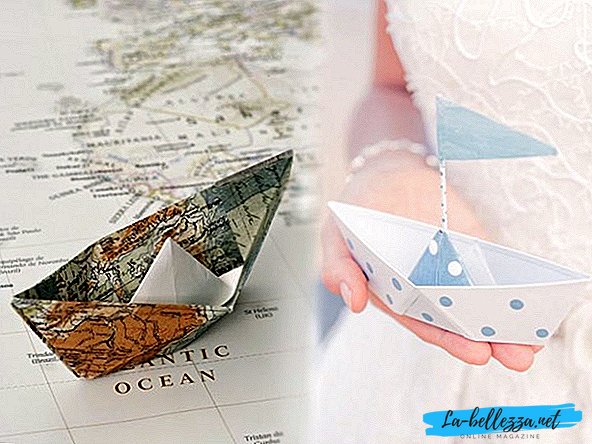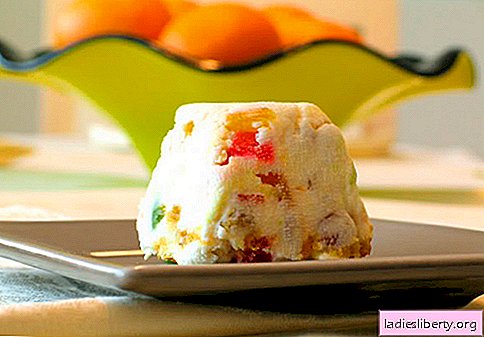
When the “little miracle” appears in the house, many young mothers are seized with fear when they have to stay alone with the baby.
There are basic rules for caring for a newborn baby, which will help to correctly perform procedures after discharge from the hospital.
Newborn Care - Wash
First of all, mom should remember that the baby’s skin is very sensitive. Improper care can lead to diaper rash and infection. Against the background of sweating or diaper dermatitis, staphylococcal skin lesion appears. It is characterized by a small pustular rash (in the folds, on the neck, buttocks).
Daily washing of infants is carried out every time after the baby is empty. In the matter of washing the girls, the main thing to remember is that the use of soap and wet wipes is recommended only for treatment in the labia.
When ingested, soap irritates the vaginal mucosa and causes inflammation. Moderation and regularity of procedures are the key to the health of the child and the rest of the mother.
The basic rules for washing girls:
1. Use running water.
2. The temperature of the water should be equal to the temperature of the body, ie be approximately 34-36ºС.
3. Apply any intimate cosmetics should be no more than 1 time per week.
4. If you use wipes, make sure that they do not contain alcohol.
5. After the toilet “in a big way” wash the girl with running water in the direction from the pubis to the pope.
How to wash a boy?
Experts unanimously claim that the boy’s hygiene is a daily external wash with running water. External means washing the genitals from the outside.
Parents should remember that proper washing of a male baby is not pulling or turning in order to lather or rinse the genitals. All that is required of mom is to wash it outside.
The correct intimate hygiene of the boy is to conduct a correct and delicate washing procedure.
Care for a newborn baby - washing
Washing is an integral part of caring for your baby. Washing in the morning is recommended after the second feeding. The face is wiped with a cotton swab dipped in warm water. Do not miss the creases on the neck.
A separate swab is used for the eyes, which will prevent the spread of an accidental infection. The eyes are rubbed from the outer edge to the bridge of the nose. If the mother noticed a purulent clot in the corners of the eyes, then the procedure should be carried out using a weak tea leaves or infusion of chamomile and calendula.
You can clean the baby’s nose using a flagellum rolled out of cotton wool. Before use, it is necessary to dip in boiled vegetable oil (naturally, cooled).
Attention! The use of cotton buds to clean the ears of a newborn is unacceptable.
Ears are cleaned a couple of times a week. This is quite enough. After the washing procedure, the baby's skin is dried using a piece of gauze.
Caring for a newborn baby - changing the diaper
There is no single charter on how to change a diaper. However, each mother should know a number of rules that must be followed:
1. Change the diaper after each “serious” bowel movement of the child.
2. Change your disposable panties day and night. A filled diaper will bring the baby discomfort.
3. Wear a clean diaper before walking or going to the clinic.
4. After 4 hours, the diaper is incomplete? Change it to a new one anyway.
5. When tearing off Velcro, forming holes in the upper layer of the product, replace the diaper.
6. In the first months, change the diaper more often. Do not save on crumbs.
Over time, mom can easily determine how often to change the diaper. After all, different kids go to the toilet with different frequencies. It is enough for a newborn baby to change diapers approximately every 3-4 hours, while checking the condition of the skin.
How to change the diaper?
• Prepare everything you need: a clean diaper, towel, powder, bucket of warm water.
• Remove the used diaper. Wet the edge of the towel in water, gently wipe the skin of the baby (experienced mothers wash the baby under running water).
• Allow the baby to lie down for a couple of minutes without a diaper (if the room is not cold).
• Treat the skin with powder, cream or vegetable oil (pre-boil in a water bath and cool).
• Put on a dry diaper and then sliders.
Newborn Care - Navel Care
At home, the mother processes the umbilical wound on her own for a week 1 time per day until it is completely healed. The procedure is carried out after bathing.
With a wet umbilical wound, treatment is performed 2 times a day. For healing, use the usual "green" or 1% solution of chlorophyllipt per alcohol.
In order to prevent damage to the skin around the navel, only the wound itself is lubricated.
If there is a crust in the navel, then it is better to remove it. For this purpose, a 3% solution of hydrogen peroxide is suitable, which can be purchased at the pharmacy ready-made.
The navel is conveniently lubricated with a cotton swab. During the procedure, it is necessary to press the thumb and forefinger of the left hand on the area around the navel, revealing it for good visibility and thorough processing. However, everything should be done carefully, without injuring the baby's skin.
Newborn Baby Care - Bathing
The first time you can bathe your baby on the second day after discharge from the hospital. As a rule, a child is bathed daily. How to carry out the procedure?
1. Prepare the bath. It must be washed well with soda, rinsed with water, doused with boiling water.
2. Put soap or shampoo, a baby washcloth (piece of cloth, cotton wool) next to it.
3. Prepare an infusion of herbs. Usually use a decoction of chamomile, calendula, sage, string, needles, mint, etc.
4. Prepare a thermometer, a bucket of rinse water, a towel, and clothes for the baby.
After everything is ready, carefully undress the child and gradually lower him on the shoulders into the water, the temperature of which should be about 37 ° C. Head and neck are on the surface.
It is best to hold the child with his left hand under his head, and with the right to carry out the washing procedure. First, wash the baby, then lather a hand or piece of cloth and wash the head (from the forehead to the back of the head).
Wash the skin behind the ears, neck, arms, armpits, groin. Rinse the baby with bucket water.
The duration of the procedure is 5-8 minutes. With age (if swimming is a joy), you can bathe your child longer.
Nail care
Before starting to trim the nails, wash your hands and wipe the scissors with alcohol. Take the baby’s handle in your palm, hold his fingers with your thumb and forefinger. Cutting, press on a small pillow of a finger of the child. This will help not to touch the skin.
On the legs, the nails must be treated evenly (to avoid ingrowth), and on the hands cut, rounding the edges.
Carry out the procedure carefully, without zeal, so as not to hurt the child. If, by carelessness, you still injured your finger, then immediately attach a bandage to it until the bleeding stops.
It happens that a day or two after treatment, a slight inflammation appears in the corners of the nail. In this case, hydrogen peroxide and Levomikol ointment will help, with which a napkin is impregnated and applied to the sore finger for the whole night.
Walks
An important part of child care is walking. It is performed in the summer immediately after discharge from the hospital. The main thing is to avoid direct sunlight.
In winter, walks begin on day 2 or 3 after discharge. If the air temperature drops below 10 ° C, then the child can not walk.
Do I need to swaddle a baby?
Of course, you need to swaddle a child. At first, the baby needs to get used to the large space. Some restriction of movements will only benefit him.
Usually, children are swaddled before bedtime. There are two ways: during the first, the pens remain free, and in the second, the pens are swaddled. Free swaddling allows the baby to calm down faster, fall asleep, and in a dream not to wake himself with his hands.
Any procedures performed by the mother should be in the joy of her child. It is important to listen to advice, to existing recommendations, but it is even more important to listen to your inner voice. Maternal instinct, even with some degree of inexperience, will help determine exactly what is good for your child and what is not.











